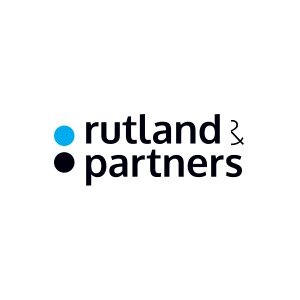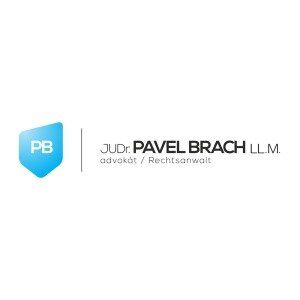Best Renewable & Alternative Energy Lawyers in Czechia
Share your needs with us, get contacted by law firms.
Free. Takes 2 min.
Or refine your search by selecting a city:
List of the best lawyers in Czechia
About Renewable & Alternative Energy Law in Czechia
Renewable and alternative energy law in Czechia governs the development, implementation, and regulation of sustainable energy sources such as solar, wind, hydroelectric, biomass, and geothermal power. As the Czech Republic seeks to fulfill its commitments to the European Union’s renewable energy targets and climate action goals, the legal landscape surrounding renewable energy is dynamic and evolving. The focus is on reducing dependence on fossil fuels, increasing the share of renewables in the national energy mix, and promoting energy efficiency and innovation through both public and private initiatives.
Why You May Need a Lawyer
Engaging with renewable and alternative energy projects can involve complex legal matters. Here are some common situations when legal assistance is beneficial:
- Starting a renewable energy project, such as building a solar farm or installing wind turbines
- Navigating permits and licensing requirements for energy installations
- Negotiating land use agreements or resolving disputes regarding property rights
- Securing funding and complying with grant or subsidy programs
- Understanding and ensuring compliance with national and EU regulations
- Handling energy sales, purchase agreements, and grid connection processes
- Addressing environmental impact assessments and community consultations
- Dealing with disputes over feed-in tariffs or regulatory changes
- Protecting intellectual property related to new energy technologies
A lawyer specializing in renewable and alternative energy can help navigate these areas, prevent costly mistakes, and provide strategic advice throughout your project.
Local Laws Overview
The legal framework for renewable and alternative energy in Czechia consists of national statutes, EU directives, and local ordinances. Key aspects include:
- Energy Act (No. 458/2000 Coll.): This act regulates the production, distribution, and trade in energy. It covers licensing, grid access, and supports mechanisms for renewables.
- Support for Renewable Energy (No. 165/2012 Coll.): This law sets out the support schemes for renewable energy, such as feed-in tariffs and green bonuses, and defines eligible renewable resources.
- Building and Environmental Permits: Renewable energy projects often require building permits, environmental impact assessments, and other regulatory approvals.
- EU Regulations: Czechia is obligated to transpose and comply with European directives targeting climate change, emissions reduction, and increased use of renewables.
- Subsidies and Incentives: The government and EU offer funding, grants, and investment incentives for renewable energy projects.
Staying current with these laws is critical as policies and support mechanisms are subject to change, especially in response to national and EU climate goals.
Frequently Asked Questions
What types of renewable energy are most common in Czechia?
The most common renewable energy sources in Czechia are biomass, solar, hydroelectric, and wind. Biomass and solar energy are particularly widespread among small-scale producers and households.
Do I need a permit to install solar panels on my home?
Most rooftop solar panel installations require a building permit. If you plan to connect your system to the electricity grid or sell excess energy, additional approvals and registration with the energy regulator are usually required.
What is a feed-in tariff and how does it work in Czechia?
A feed-in tariff is a government-guaranteed price paid to producers of renewable electricity who feed surplus energy into the grid. Czechia’s feed-in tariff system has changed over time and now mainly supports existing projects, with new subsidies limited or subject to caps.
Can businesses apply for renewable energy subsidies?
Yes, both individuals and businesses can apply for renewable energy subsidies, grants, and incentives provided by the Czech government or the European Union. Each program has its own eligibility requirements and application process.
Are there zoning restrictions on building wind turbines?
Yes, wind turbine installations are subject to zoning laws, environmental regulations, and municipal approval. Restrictions often apply near protected areas, residential zones, and historically significant sites.
What happens if I do not comply with energy regulations?
Noncompliance can lead to administrative penalties, withdrawal of licenses, mandatory shutdowns, and repayment of received subsidies. In some cases, legal disputes may arise, requiring legal representation.
How are renewable energy projects financed in Czechia?
Financing may come from private investment, bank loans, governmental grants, or EU funding programs. Legal advice is recommended when arranging contracts and securing investment.
Can foreign investors participate in Czech renewable energy projects?
Yes, foreign investors are welcome and often participate in the Czech renewable sector. However, they must comply with all national laws and procedures, and sometimes additional requirements apply.
What are the main challenges facing renewable energy development in Czechia?
Key challenges include evolving regulations, delays in obtaining permits, fluctuating support schemes, access to grid infrastructure, and local opposition to certain projects.
Where can I get legal advice about renewable energy?
You can consult specialized law firms, environmental organizations, or reach out to government agencies and chamber of commerce offices that focus on energy matters.
Additional Resources
If you are looking for more information or assistance regarding renewable and alternative energy legal matters in Czechia, consider reaching out to:
- Ministry of Industry and Trade (Ministerstvo průmyslu a obchodu): The key governmental authority on energy regulation and support programs.
- Energy Regulatory Office (Energetický regulační úřad): Oversees the electricity and gas markets, issue licenses, and monitors tariffs.
- State Environmental Fund (Státní fond životního prostředí): Administers subsidies and investment support for green technologies.
- Czech Renewable Energy Chamber (Komora obnovitelných zdrojů energie): Represents industry interests and provides guidance for businesses and individuals in the sector.
- European Union Funding Portals: Provide details on available EU grants for renewable energy and sustainability projects.
Consulting these organizations or their respective websites can provide valuable official information and updates.
Next Steps
If you require legal assistance in renewable and alternative energy matters in Czechia, consider the following steps:
- Clearly define your project or legal issue and gather all relevant documents and permits
- Seek recommendations for legal professionals or law firms with proven expertise in renewable energy law
- Schedule a consultation to discuss your needs, potential risks, and regulatory obligations
- Verify the lawyer’s understanding of local laws, current support mechanisms, and relevant EU regulations
- Maintain open communication to stay informed about changes in legislation or policies impacting your project
Taking these steps will help guide your project or dispute through the complexities of renewable and alternative energy law, ensuring compliance and safeguarding your interests.
Lawzana helps you find the best lawyers and law firms in Czechia through a curated and pre-screened list of qualified legal professionals. Our platform offers rankings and detailed profiles of attorneys and law firms, allowing you to compare based on practice areas, including Renewable & Alternative Energy, experience, and client feedback.
Each profile includes a description of the firm's areas of practice, client reviews, team members and partners, year of establishment, spoken languages, office locations, contact information, social media presence, and any published articles or resources. Most firms on our platform speak English and are experienced in both local and international legal matters.
Get a quote from top-rated law firms in Czechia — quickly, securely, and without unnecessary hassle.
Disclaimer:
The information provided on this page is for general informational purposes only and does not constitute legal advice. While we strive to ensure the accuracy and relevance of the content, legal information may change over time, and interpretations of the law can vary. You should always consult with a qualified legal professional for advice specific to your situation.
We disclaim all liability for actions taken or not taken based on the content of this page. If you believe any information is incorrect or outdated, please contact us, and we will review and update it where appropriate.
Browse renewable & alternative energy law firms by city in Czechia
Refine your search by selecting a city.










